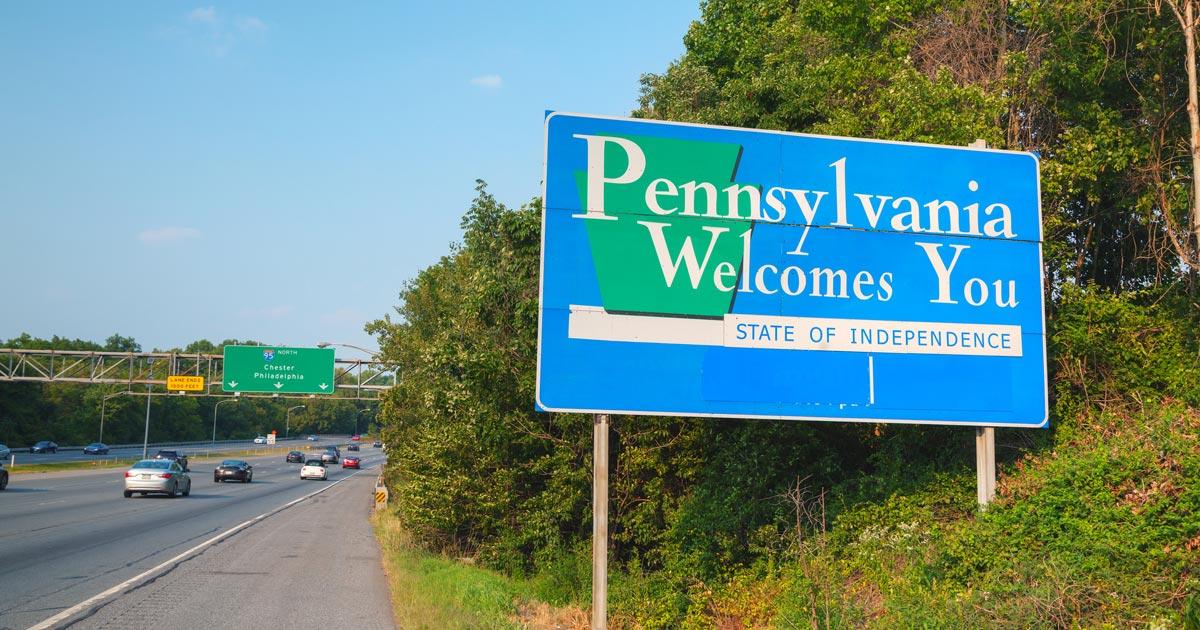 On October 6, 2020, the auditor general of Pennsylvania, Eugene DePasquale, released a status update on his ongoing audit of the Pennsylvania Department of Community and Economic Development (DCED) waiver process for businesses that appealed Governor Wolf’s covid-19 closure order. To everyone’s surprise, the auditor general concluded that his office discovered inconsistencies and puzzling decisions in the business waiver process.
On October 6, 2020, the auditor general of Pennsylvania, Eugene DePasquale, released a status update on his ongoing audit of the Pennsylvania Department of Community and Economic Development (DCED) waiver process for businesses that appealed Governor Wolf’s covid-19 closure order. To everyone’s surprise, the auditor general concluded that his office discovered inconsistencies and puzzling decisions in the business waiver process.
On March 19, Governor Tom Wolf ordered businesses not categorized as “life-sustaining” to close in order to slow the spread of covid-19, however, businesses could request a waiver to remain open. Immediately afterward, numerous business owners and legislators complained that the waiver process lacked transparency. On April 30, the auditor general’s office announced DePasquale would audit how DCED manages the waiver process. On September 14, 2020, US district judge William Stickman IV found Governor Wolf’s business closure order unconstitutional, stating that covid-19 orders from Governor Wolf and Pennsylvania secretary of health Rachel Levine violated, and continue to violate, the First Amendment right to freedom of assembly as well as the due process and equal protection clauses of the Fourteenth Amendment. William Stickman IV writes that despite having good intentions in addressing the spread of the virus, “even in an emergency, the authority of government is not unfettered.”
In the time from Wolf’s decision to close non-“life-sustaining” businesses to the lifting of the restrictions on April 3, 2020, the DCED received 42,380 exemption requests. The auditor general looked into those applications and found that more than five hundred businesses received answers from DCED that later changed. DePasquale said, “The waiver process appeared to be a subjective process built on shifting sands of changing guidance, which led to significant confusion among business owners.”
From the news release by Auditor General DePasquale:
Business owners typically received one of three answers from DCED: an approval of the request to remain open, a denial, or a statement that a waiver was not required to remain open. So far, auditors have found:
171 waiver applications were changed from “No” to “Yes”
151 waiver applications were changed from “No” to “Not Required”
73 waiver applications were changed from “Yes” to “No”
48 waiver applications were changed from “Not Required” to “No”
“Some owners of small businesses may not have had the knowledge to use the right ‘buzzwords’ in their justification for remaining open, or realized they could ask a legislator for help to navigate the process,” DePasquale said, noting that some businesses submitted multiple waiver requests.
Even more damaging was the request by the auditor general for Wolf to provide details on his communication with legislators and lobbyists about waiver requests, noting that “the Pennsylvanians deserve answers about the role that outside influence may have played in whether businesses were treated fairly and consistently.”
A Disturbing Disregard for Private Property and the Rule of Law
As Ryan McMaken wrote, the lockdowns were an experiment concocted by government that made a mockery of basic human rights while essentially expropriating private property. Ludwig von Mises recognized the tendency by government wanting to control everything when he wrote:
All those in positions of political power, all governments, all kings, and all republican authorities have always looked askance at private property. There is an inherent tendency in all governmental power to recognize no restraints on its operation and to extend the sphere of its dominion as much as possible. To control everything, to leave no room for anything to happen of its own accord without the interference of the authorities—this is the goal for which every ruler secretly strives. If only private property did not stand in the way!
Robert Higgs in his book Against Leviathan: Government Power and Free Society articulates well the ingrained tendencies of government to try to grab as much power as possible. In particular, the tendency of government bureaucrats to take advantage of “emergencies” like covid-19 to consolidate and grab power.
More importantly, businesses and private citizens cooperate with the government and support many new regulations and government powers with a sense of patriotic duty. Slogans like “One little ask, wear a mask” along the roads in Delaware or the more general “I wear a mask not for myself, but to protect others. Do it not for yourself, but do it for others” instill in people the feeling and moral obligation that it is their patriotic duty to wear a mask because the USA depends on their actions.
Robert Higgs masterfully introduces the concept of regime uncertainty.
Private investment is the most important driver of economic progress. Entrepreneurs need new structures, equipment, and software to produce new products, to produce existing products at lower cost, and to make use of new technology that requires embodiment in machinery, plant layouts, and other aspects of the existing capital stock.
Regime uncertainty pertains to more than the government’s laws, regulations, and administrative decisions. For one thing, as the saying goes, “personnel is policy.” Two administrations may administer or enforce identical statutes and regulations quite differently.
Any business owner knows that predicting the future demand for products and services is not an easy task. Adding government rules and regulations to the mix, many would be entrepreneurs who decided to quit. Even more damaging, as Higgs points out, is the uncertainty surrounding the application of rules and regulations. Businesses and entrepreneurs are able to navigate a stable regulatory environment and adjust business plans to fulfill those requirements. However, once the ability to predict how rules and regulations will be interpreted by government bureaucrats, based who makes the decision and how the paperwork is filed, is no longer there, the shifting sands of government make it almost impossible to operate profitably. The small business owner suffers the most without the resources to fight the government. Larger corporations with ample resources to adjust to shifting rules and regulations and the ability to lobby and influence decision-makers are the winners in all this.
Pennsylvania’s business waiver process provides scholars with a good case study and example of Higgs’ regime and regulatory uncertainty principle. Public policy experts should take note of how convoluted and inconsistent the waiver process was. Defenders of government interference will point out that because of the sudden onset of covid and the urgency ofimplementing the waiver process naturally there would be problems. But why do public policy experts and government officials always have to believe that they can control and predict human behavior?
Full story here Are you the author? Previous post See more for Next postTags: Featured,newsletter
















